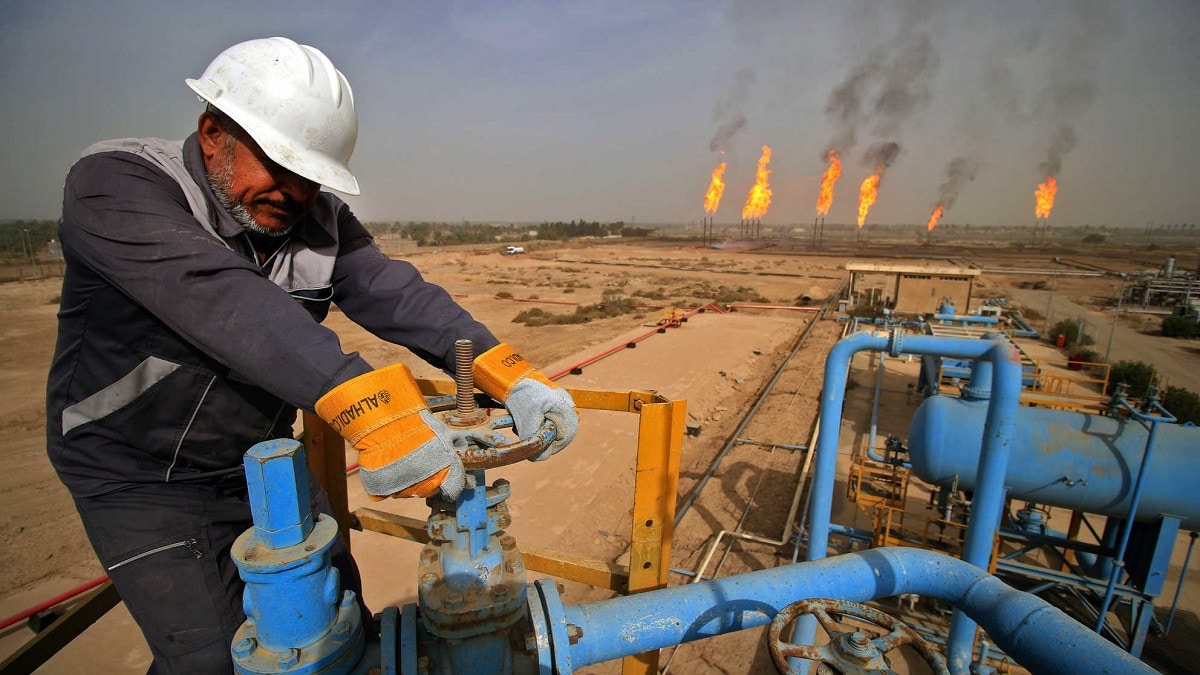China considering Iraq as an alternative supplier as KSA raises oil OSP

Shafaq News/ China's imports of crude oil rebounded in March, but aren't likely to grow much more for a while - fuel demand is wilting amid COVID-19 lockdowns and high prices.
The world's biggest crude importer brought in 10.88 million barrels per day (bpd) in March, up from a four-month low of 9.51 million bpd in February, but still well below January's 11.54 million bpd, according Refinitiv Oil Research.
The jump last month can be largely ascribed to an increase in demand from refiners as pollution restrictions were lifted after the Winter Olympics in Beijing in February, and as fuel demand increased following the Lunar New Year holidays.
But there are several question marks over the strength of fuel demand in China, especially given the ongoing lockdowns in major cities including the commercial hub of Shanghai, with its population of around 26 million people.
Estimates vary as to how much fuel demand is being lowered by Beijing's policy of zero-COVID tolerance. But it's likely that at least 200,000 bpd of consumption has been cut by the Shanghai lockdown alone, with more demand destruction in other cities as well as through lower air travel.
Additional exports of refined products can soak up some of any fuel excess to domestic needs. Still, it's worth noting that China slashed export quotas in its first allotment for 2022, cutting them by 56% to 13 million tonnes, as part of efforts to cut pollution and ensure domestic supplies.
Chinese refineries are also cutting throughput this month, with S&P Global Commodity Insights reporting that at least 10 refineries are planning cuts of as much as 24,000 bpd each to runs in April.
While April crude oil imports are largely locked in, having been arranged mainly in February, it's likely that imports will start to decline more in May.
The decision by Saudi Arabia to raise its official selling price (OSP) for May-loading cargoes to Asia to a record premium over the regional Oman/Dubai benchmark is likely to serve as a further drag on China's imports.
Some Chinese refiners have asked for lower volumes in May from Saudi Arabia, which is China's top supplier of crude, according to sources with knowledge of the matter.
Saudi Aramco, the kingdom's state oil producer, lifted the OSP for its flagship Arab Light crude for Asia in May to $9.35 a barrel above the Oman/Dubai benchmark, a jump of $4.40 a barrel from April's premium of $4.95 a barrel.
Saudi crude is mostly sold under long-term contracts, but both the seller and the buyers can vary monthly volumes within certain parameters.
The record Saudi OSPs for May will encourage refiners in Asia to take as little Saudi oil as possible and seek to buy alternatives on the spot market.
While India, Asia's second-biggest crude importer, will likely turn more to heavily discounted Russian crude, there are few signs that China will do the same.
Chinese refiners may seek more Middle Eastern crude from spot sellers such as Iraq and Oman, but could also buy from the United States and west Africa as differentials make these grades more competitive.
But with no sign of COVID lockdowns ending, and the possibility they may be widened to other cities, it's hard to construct a bullish scenario for China's oil import demand.
Another bearish factor is that retail gasoline prices are at the highest levels since 2006, further discouraging drivers already wary of travelling because of the ongoing coronavirus pandemic, even in cities not under lockdown.
Overall, China's ongoing battle with COVID and its maintenance of a zero infection policy serves as a reminder that it's not only fears of the loss of Russian crude in the wake of Moscow's invasion of Ukraine, which Russia calls a "special operation", that can drive prices.





